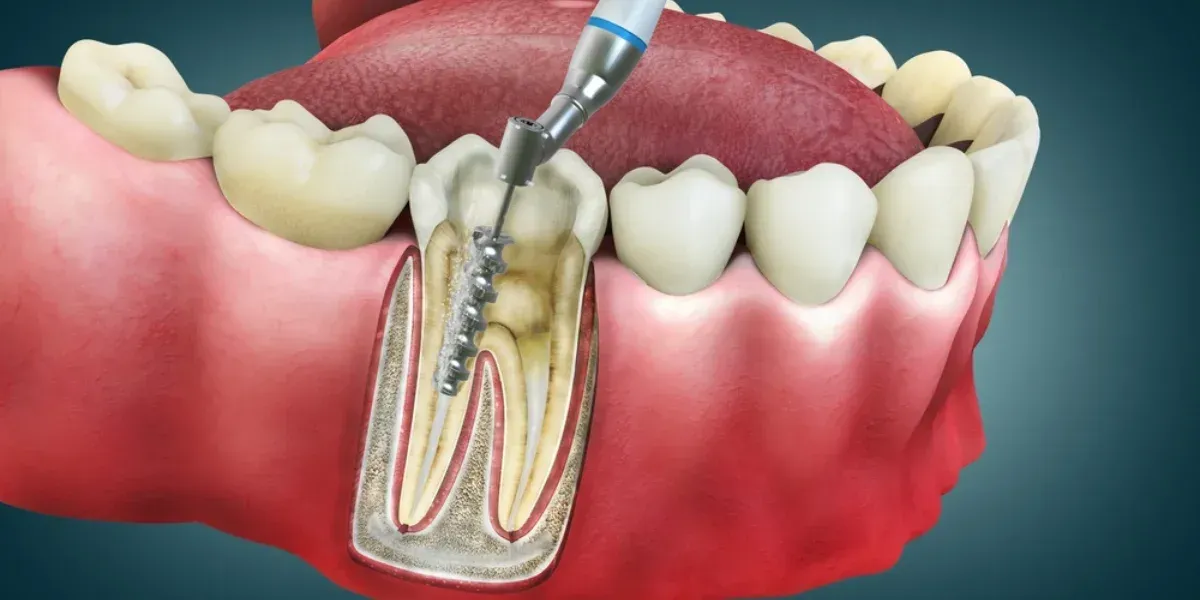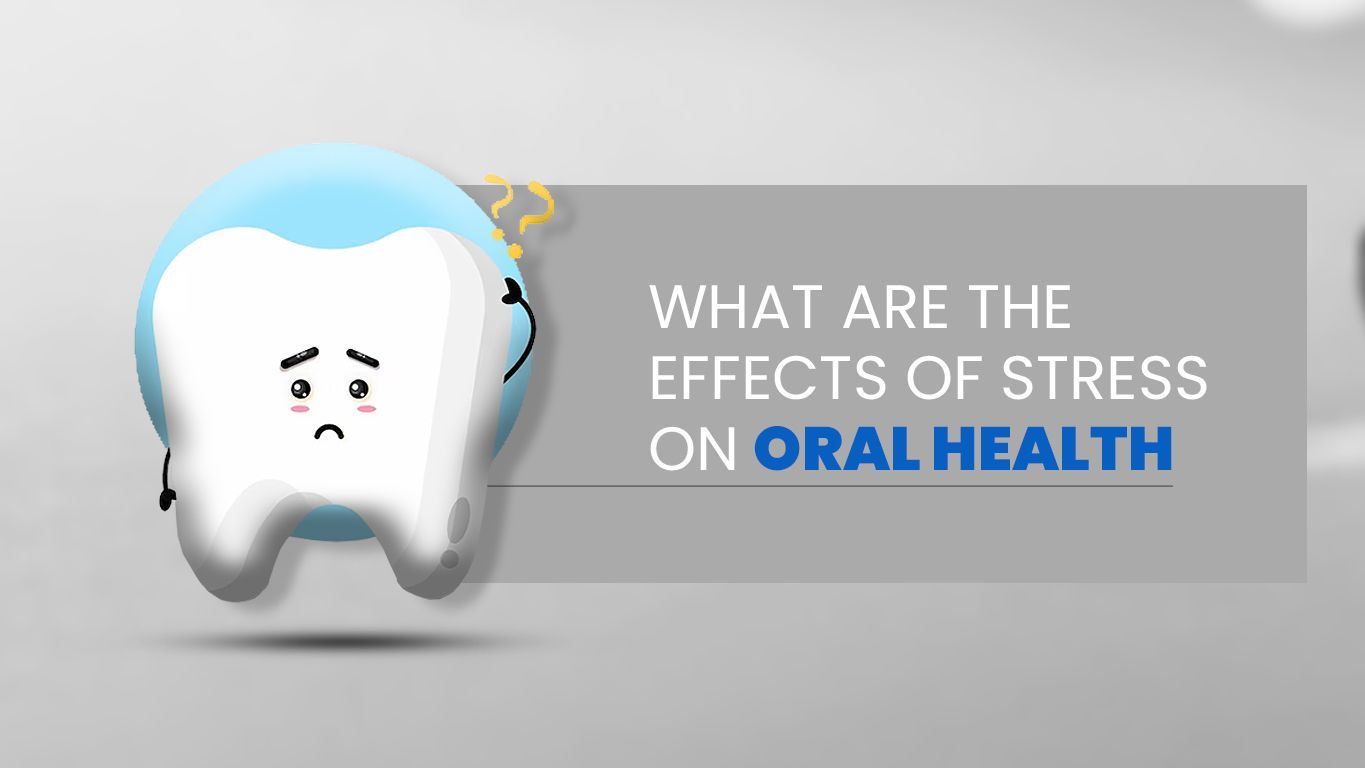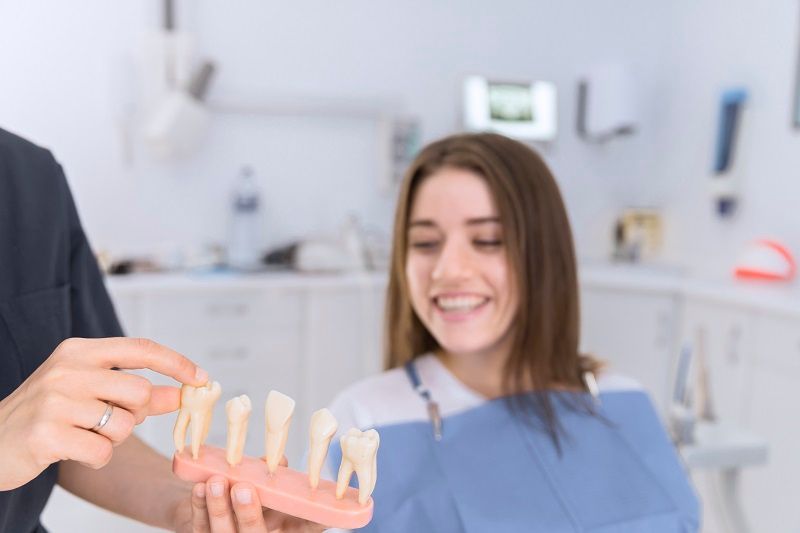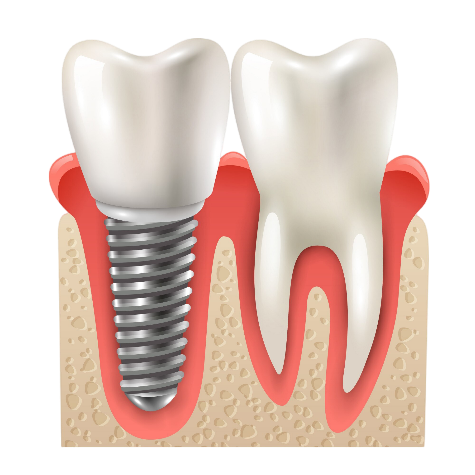What are Restorative Dental Procedures?

When you have a cavity, or you’re looking to restore your smile after having lost a tooth, your dentist will often suggest performing some type of restorative dental procedure. Still, what exactly is it that makes a dental procedure considered restorative? What are the primary reasons for having a restorative dental procedure and why are they important?
Restorative dental procedures are those which involve replacing missing teeth or mending damaged ones. They can be performed for hygienic or cometic reasons and include everything from dental implants to fillings. These procedures are important for the health and self-esteem of patients.
If you’d like to better understand what restorative dentistry is and how it manifests in the operatory, you've come to the right place. Below we’ll break down some of the most common procedures you will encounter and discuss how you can prevent needing them in the future.
Types of Restorative Dental Procedures
About 6% of all dental procedures are restorative. But what exactly does that mean? What specific procedures count as restorative and why?
In the sections below, we will explore the answers to these questions by surveying some of the most common restorative dental procedures.
Fillings as Restorative Dental Procedures
Fillings are among the most common restorative dental procedures. If you’ve ever had a cavity or cracked a tooth in an accident, you probably know how they work.
First the dentist applies a local anesthetic to numb the area around the tooth. If there’s a serious infection, they may first prescribe their patients antibiotics to reduce it. Part of this is because the anesthetic may prove ineffective if the infection is bad enough.
Next, they will use a device such as a drill or an air abrasion instrument to remove the decayed area and prevent infection. Once the dentist is certain the decay is all gone, they will clean out the area and fill in the hole with anything from silver and gold to composite resin fillings.
Crowns as Restorative Dental Procedures
Crowns are similar to fillings in that they protect damaged teeth and cover up cosmetic blemishes caused by cracks and cavities. They essentially act as a cover or lid for your tooth and prevent your cavities from getting infected or worsening.
For that reason crowns are often recommended after other types of dental procedures such as a root canal.
Crowns are made of many different materials, including:
-
Composite resin
-
Porcelain
-
Gold
-
Silver
-
Ceramic
Dental Implants as a Restorative Dental Procedure
Individuals can lose their teeth due to poor dental hygiene, medical conditions and just plain bad luck. When that happens to you, it can feel like you’ll never look the same again. Fortunately, today dentists can put in highly realistic implants , perfectly matched to your gums and real teeth.
Your dentist will start by drilling into the bone under your gums and setting in place your implant’s post. This will act as the root of your artificial tooth. For about a month a process called osseointegration occurs, where your jawbone grows around the implant post.
When that process has ended your dentist will attach the abutment to the post. This is the piece that your implant will attach to. Finally, you'll be ready to attach the actual implant or learn how to put yours in and take it out depending on what kind you have.
There are two main types of dental implants:
-
Fixed: These implants are screwed directly on the abutment and often further solidified in place by a dental sealant. These are generally cleaned with a low-abrasive toothpaste right along with your natural teeth in the morning.
-
Removable: Often, these artificial teeth are attached to a small piece that snaps on the abutment when you want to use it. It must be removed and cleaned daily to maintain proper dental hygiene.
Bridges as Restorative Dental Procedures
You can think of bridges as being similar to implants, except instead of filling one empty gap where one tooth had been, they fill a wide space where many teeth once were.
There are four basic types of bridges, they include:
-
Traditional: Traditional dental bridges are the most widely used. They stay firmly fixed in a gap that sits between two of your natural teeth. Those natural teeth are given crowns to attach abutments to. These are known as abutment teeth. The tooth is cemented to them and held in place.
-
Implant Supported: This can involve implants placed along the bridge for each tooth missing or for enough to hold it in place. Either way, these work much the same as individual implants.
-
Cantilever: This type of bridge requires only one abutment tooth and a dental crown to keep it in place. This is often used when the other side of the gap in the missing teeth is too far for a traditional bridge.
-
Maryland: These are similar to traditional dental bridges in that it is held in place in a gap between two teeth. However, they use a metal or porcelain wire and bond it to the abutment teeth instead of a dental crown.
Why are Restorative Dental Procedures Important
Restorative procedures are important for more reasons than simply maintaining your dental hygiene. So far, we've seen how they prevent tooth decay and infection, save teeth that would otherwise eventually need to be pulled and protect dental hygiene into the future. However, something just as important, is the way in which they can improve your self-image.
If you crack or lose a tooth, it’s not uncommon to feel self-conscious about smiling or even opening your mouth around others. This can lead to isolation, missing out on opportunities and ultimately low self-esteem. However, with restorative procedures like crowns and implants, you can quickly regain that confidence and all the good things that come with it.
What Can You do to Avoid Needing Restorative Dental Procedures
You can avoid the hassle of going through a restorative dental procedure by taking preventative measures now. As well as restorative procedures, dentists offer diagnostic and preventive services. These include:
-
Regular checkups
-
Cleanings
-
X-rays
These help you identify problems early and prevent them from happening in the first place.
At home there are several measures you can start taking to ensure you don’t end up with the kinds of problems that lead to restorative procedures.
Strategies for the prevention of tooth decay include:
-
Brush your teeth in quadrants twice a day: Divide your teeth into four quadrants; upper left and right and lower left and right. Brush each quadrant for thirty seconds. When all is said and done you will have brushed your teeth evenly for the recommended 2 minutes without it feeling so long.
-
Use mouthwash: A little mouthwash in the morning and just before you go to bed can kill up to 99% of germs when combined with brushing.
-
Floss daily: A Lot of cavities get started on the sides of your teeth. What's worse is these are harder to notice until it's too late because of the tight space they're squeezed in. Flossing every day can prevent this.
So Really, What are Restorative Dental Procedures?
Restorative dental procedures give you a second chance when your teeth are damaged or missing. Further, they help you maintain a healthy, perfect smile far into the future. They can help ensure your teeth remain aligned properly, extend their life and even replace them if they’ve been lost.
The most common restorative procedures include things like fillings and crowns put in or replacing missing teeth with bridges and dental implants. To ensure you take care of the work your dentist has done, use mouthwash, brush your teeth twice a day and floss between them--whether they’re your natural teeth, implants or crowns.
Ellicott City Dentistry provides gentle, family oriented dental care to the adults and children of this community. We utilize the best equipment sterilization techniques available to dentists. Call for an appointment now at 410-465-3021











